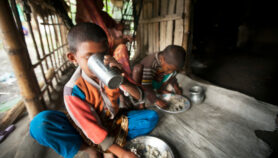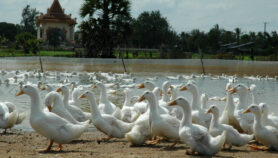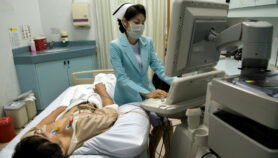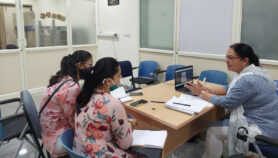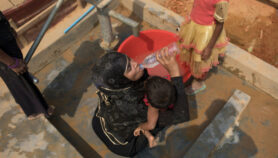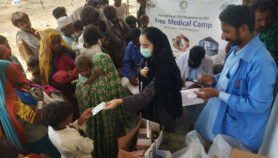By: T.V. Padma
Send to a friend
The details you provide on this page will not be used to send unsolicited email, and will not be sold to a 3rd party. See privacy policy.
The Joint UN Programme on HIV/AIDS (UNAIDS) has set up a commission to study the disease and its impacts on development in Asia and the Pacific.
The ten-member commission launched last week (14 July) will examine the state of the epidemic, including disease incidence and levels of awareness, prevention and treatment.
It will also assess the epidemic’s medium-to-long term socioeconomic impacts, including its effects on national budgets and health systems.
Some scientists predict a rapid growth of HIV infections in the next two to three years in Bangladesh and China because they fear governments are underestimating the epidemic and are not implementing adequate strategies to control it (see Slow HIV epidemics breed complacency in Asia).
“There are many countries in the region that are not on the radar because of seemingly low prevalence,” says Tim Brown, commission member and senior research fellow at the US-based East West Center. “But if unchecked, the epidemic could spread fast.”
In 2005, an estimated 8.3 million people were living with HIV in the Asia Pacific region, according to UNAIDS. This is about one-fifth of the global total, but the region is home to more than half of the world’s population.
“There is no clear consensus on some issues, such as how the epidemic will evolve in the region, or the best policy response to the crisis,” says Chalongphob Sussangkarn, president of the Thailand Development Research Institute, Bangkok.
The commission will not duplicate the work of existing agencies but will look at available data and assess how to close the data gaps, says its chair Chakravarthi Rangarajan who also chairs the Indian government’s economic advisory council.
Maire Bopp, founder of the Pacific Island AIDS Foundation told SciDev.Net: “Asia and the Pacific are two vastly different entities and it will be a challenge to create a common framework of action for the region as a whole.”
The commission will submit its report at the end of 2007, giving recommendations for policymakers.



